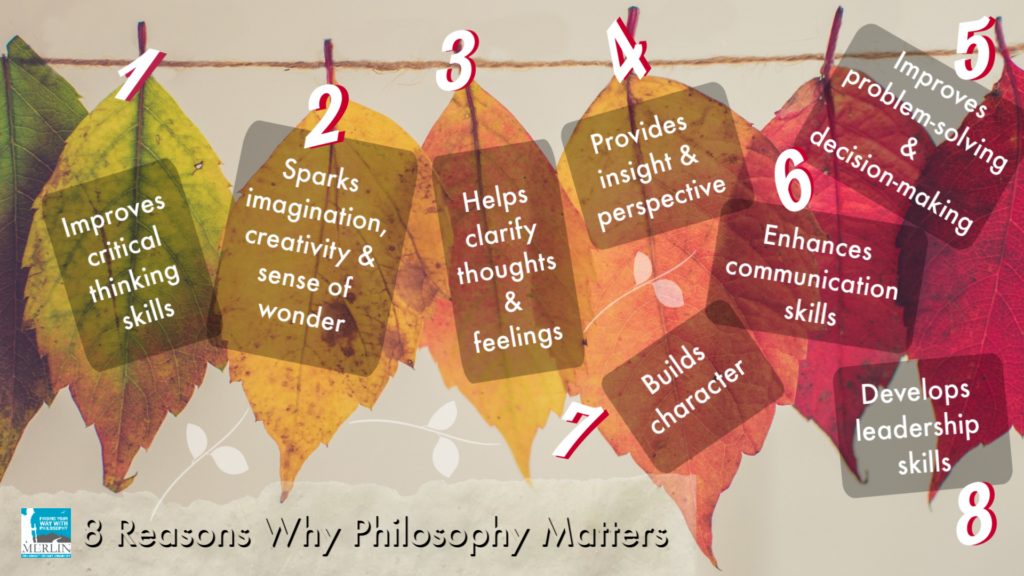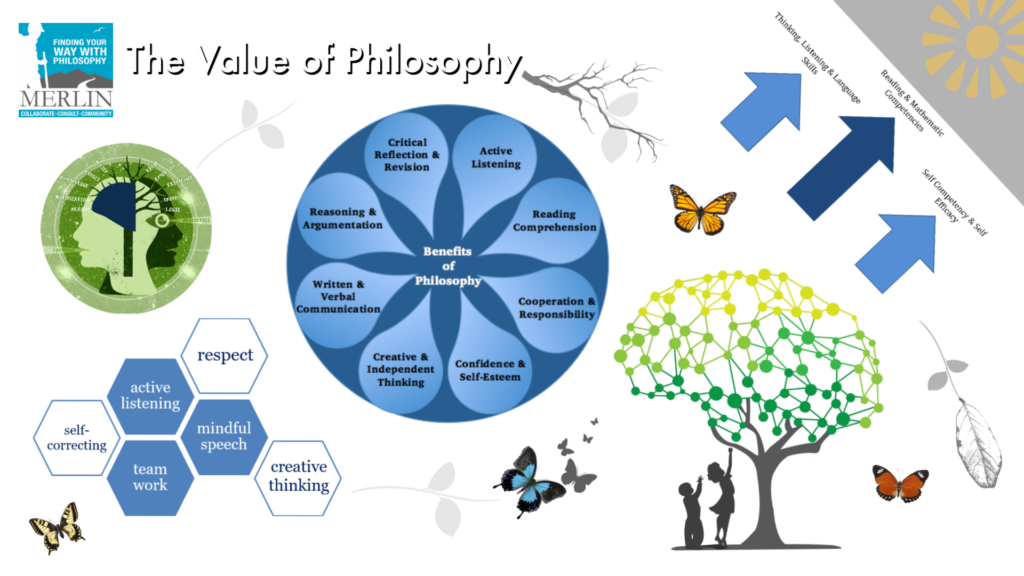
Philosophy is an extremely valuable resource that can help you in an abundance of ways. In addition, it is a genuinely fun, exciting, & rewarding activity in-and-of-itself! But what if you don’t know anything about philosophy? Or, maybe you do, but aren’t sure how it applies to your particular situation. That’s where we come in. Our activities & services are geared to help you find your way with philosophy!
What Philosophy Can Do For You
Philosophy is the art of critical thinking. It is a method, thinking activity & way of life and a valuable compass and navigational tool. It plays an integral role in every aspect of our personal and professional lives & can have a positive impact on how we see, approach & navigate the world. Contrary to popular belief, philosophy is not pointless musings without practical effect. The skills and dispositions it cultivates bear significance in a number of ways and can help you:
- Sharpen your analytical skills
- Help you problem-solve
- Spark and sustain your imagination & sense of wonder
- Help you clarify thoughts & feelings
- Address personal challenges
- Create more effective action plans
- Deepen awareness about your experiences in the world & the world around you
- Make better (more-informed) decisions
- Change your behavior
- Feel more fulfilled
- Build character & strength
- Encourage creative thought
- Cultivate compassion & empathy
- Develop the skill & confidence to ask good questions
- Provide & expand perspective
- Develop discipline
- Remain open to the world
- Contribute to dialogue
- And much, much more…
Why A Philosophical Approach is Beneficial
There are many ways to address your concerns and aims. However, we feel that philosophy is a particularly advantageous approach. Why? Because it facilitates and equips us with a unique & valuable vantage point with that “thing” with which we are concerned, thinking about and/or experiencing (i.e., our object of concern). A philosophical approach can help us narrow our focus on a particular issue & broaden our view, as well as help us identify and examine the philosophical undercurrents beneath our (and others’) “streams of thought.” Moreover, it can provide us with a set of tools to navigate those spaces in between. Metaphorically speaking, philosophy arms us with a set of oars & a looking glass and a means by which to approach, recognize & more successfully navigate the vicissitudes inherent in life.
Philosophy is an activity of the heart & mind. When we approach life philosophically we can achieve a greater level of understanding (conceptual/objective & experiential/subjective) about what we’re grappling with & what to do.
Cultivating Philosophical Sensitivity

Philosophy is an activity of the heart & mind.
Philosophical sensitivity is an important part of taking a philosophical approach to life and involves a particular way of seeing and reflecting upon the world. Cultivating this faculty is important & very connected to our day to day lives. The questions of philosophy are, after all, the questions of life. According to Jana Mohr Lone, while philosophy frequently entails examination and reflection about general and often abstract questions (e.g., what is justice? what is beauty? what is fairness?), typically it is in the particular features of our lives that these questions are raised. The capacity to identify abstract questions of everyday experience, to see as Bertrand Russell professed, “familiar things in an unfamiliar aspect,” is central to philosophical sensitivity and (we feel) philosophy as a thinking activity, an art, and way of life. So what is the relationship between this unique perceptual capacity & philosophy? Or, at least our conception of philosophy? Consider this analogy:
Philosophical sensitivity is like a pair of eyeglasses that allow you to pick up on the philosophical dimensions of life that you might not have without putting them on. This “perceptual capacity or faculty” is important and integral to embracing philosophy as “a thinking activity, an art, and way of life.” It is necessary but not sufficient for the latter, which has the distinguishing feature of pushing further by demanding that one never take these glasses off.
The Relevance & Practical Import of Philosophy
In addition to its intrinsic value, embracing philosophy as “a thinking activity, an art & a way of life” is beneficial because it can help us remain open to the world and understand what we think & why and, further, whether or not our thoughts are philosophically justified. Moreover, it can also help us translate these (conceptual) activities into practical terms (actions/behavior) so that we can structure our lives in ways that help to promote health & happiness and enrich our lives (and the lives of others) in meaningful ways.



